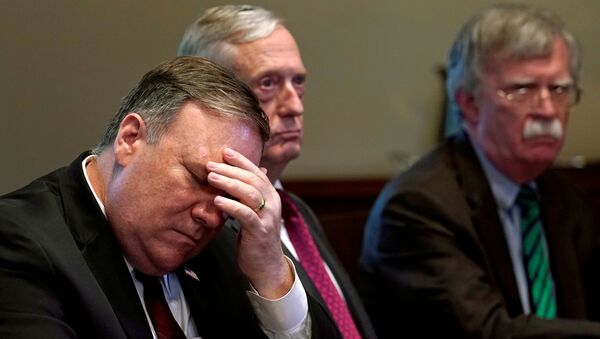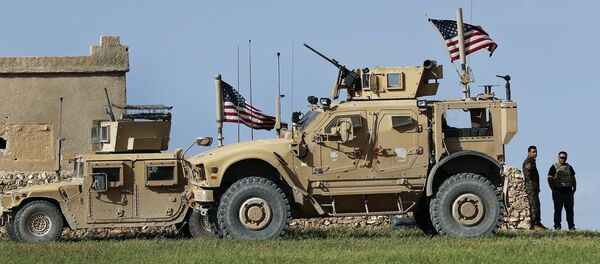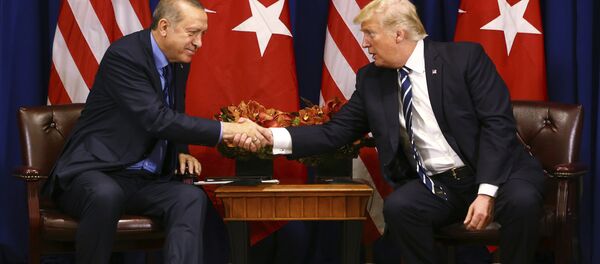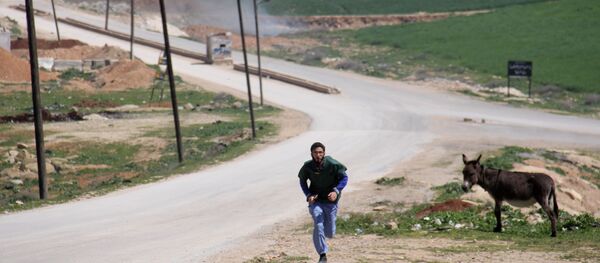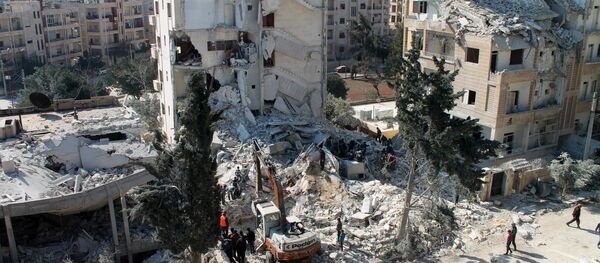"We are not withdrawing troops at this stage," an anonymous US official told AFP Friday. The US has roughly 2,000 troops in eastern Syria at 12 military installations. US President Donald Trump announced last month the US would withdraw from the country as a tense situation developed on the Syria-Turkey border, in which it seemed a Turkish war against US-allied Kurdish militias in the Syrian Democratic Forces was imminent.
Trump's national security adviser, John Bolton, traveled to Ankara on Tuesday to tell Turkish President Recep Tayyip Erdogan that his New York Times op-ed on the anticipated US withdrawal was "wrong and offensive." Erdogan's January 7 article promised a new Turkish offensive in Syria to root out Daesh after the US withdrawal and gave extensive details on their plans for governing Kurdish areas without the Kurdish militias the US has called allies and that presently exercise de facto control over the territory.
That provoked a row with the Turkish leader, who retorted that Bolton was "making a big mistake" in previous comments that vindicated the Turkish YPG militia. "Terrorist organizations do not represent the Kurds," Erdogan said, and promptly cancelled the rest of their meeting.
Uluc Ozulker, the former Turkish ambassador to France and Libya, told Sputnik Friday that Tuesday's tumultuous meeting proved "it [was] absolutely clear that the solution to the Syrian problem can only be provided by the three Astana guarantor countries," namely Russia, Turkey and Iran. "Other players, at this moment, do not have sufficient strength and capabilities for this."
Then on Thursday, US Secretary of State Mike Pompeo gave a speech at the American University in Cairo, the same place that former US President Barack Obama spoke a decade ago, and repudiated Obama's speech as well as nearly his entire political legacy in the Middle East, calling them "policies that produced so much needless suffering" and saying they came from an "age of self-inflicted American shame."
In his speech, Pompeo spoke of the US involvement in Syria as a war with two goals: stopping Daesh and stopping Iran. He noted that "now is the time" for US forces to withdraw, "but this isn't a change of mission," saying that " airstrikes in the region will continue as targets arise."
"In Syria, the United States will use diplomacy and work with our partners to expel every last Iranian boot, and work through the UN-led process to bring peace and stability to the long-suffering Syrian people," Pompeo said. "There will be no US reconstruction assistance for areas of Syria held by Assad until Iran and its proxy forces withdraw and until we see irreversible progress towards a political resolution."
Meanwhile, a source in the Syrian Ministry of Foreign Affairs told Sputnik Friday that the Syrian Arab Army was "ready to forcefully recover every inch of Syria, even if Trump keep US soldiers on our soil."
Radio Sputnik's Loud and Clear spoke with Peter Ford, the former UK ambassador to Syria, and Rick Sterling, an investigative journalist and member of the Syria Solidarity Movement, about the developments.
When Sputnik last spoke to Ford on January 4, he said of the US withdrawal, "The precise timing is no longer important; it's the direction of travel that counts."
"People can begin to make their calculations now," Ford said at the time. "The Kurds are in deep discussion with Damascus and with Moscow on the modalities for the return of the Kurdish regions to the bosom of the Syrian state. The Turks are holding off, in the knowledge that eventually the US will withdraw, that the US protected Kurdish militia will be taking themselves far away from the Turkish border, perhaps dissolve themselves completely."
"This is the way it's going to go; the die is cast."
On Friday, he reiterated that position, despite recent statements or implications otherwise.
"I think Pompeo's speech in Cairo, his non-mention of any conditions for withdrawal, show the way in which things are moving. Pompeo seems to be on the same wavelength as Trump — heaven knows what game John Bolton thinks he's playing, but as military sources are quoted as saying, ‘We, the military, don't take orders from Bolton,' it's going to happen."
Sterling agreed, saying Pompeo's speech matters much more than Bolton's. "The question is, what's going to happen in the meantime? Even if they start this now, some of the forces that are pushing very hard against this — it's not just the neocons and the hawks like Lindsey Graham and John Bolton — the foreign policy establishment is casting a lot of doubt on this and raising a lot of questions.
"At the core of Pompeo's speech, his real acclaim is that the US, under President Trump, is restoring good relations with their key allies — being Israel and Saudi Arabia. What's going to be the response in Saudi Arabia and Israel, and are they going to be able to upend this, destabilize it, somehow turn things around? I mean, there could be a chemical weapons incident that might happen; some of the forces that have carried those out in the past are undoubtedly considering something like that."
"In thinking about the way Trump did this, I was reminded of John F. Kennedy's decision in 1963 to withdraw troops from Vietnam. He did that with a National Security Action Memorandum, and he had the support of his defence secretary, [Robert] McNamara; he had the support of his military leadership. They did not announce it publicly, but this decision was made to basically start by withdrawing 1,000 troops from Vietnam by the end of the year, in just a few months, and have a complete withdrawal take place after the election in ‘64."
"Of course, we know what happened with John F. Kennedy," Sterling said, noting that Kennedy was assassinated in November 1963 and the US stayed in and expanded the Vietnam War for another 13 years, "so there's a lot of things that can happen before those few thousand troops in Syria are actually withdrawn. But that said, I think Pompeo's speech yesterday is definitely supportive of Ambassador Ford's belief and claim that Trump is serious about changing the US policy and the on-the-ground troops there."
Ford said he didn't think that Bolton was "departing from the script" of the Trump administration, but rather that he was "part of the smokescreen, behind which the withdrawal is taking place. He's part of the bluster. I'm sure that personally, he would do everything in his power, if he could, to nix the whole thing, yes."
He noted, on the other hand, that Bolton had also made overtures to Russia indicating his willingness to enter negotiations concerning the US withdrawal.
But what of Idlib Governorate, that last remaining pocket of armed opposition to Damascus, saved only by an 11th hour negotiation between Russia, Turkey and Iran last September?
Sterling noted that Hayat Tahrir al-Sham, formerly Jabhat al-Nusra and also known as al-Qaeda in Syria, had solidified its grip in Idlib and "is not a part of the deconfliction agreement that was made that some of the armed opposition groups had some agreement with." That, he said, was "paving the way to direct conflict, sooner or later."
When that time comes, "we're going to see whether the Western forces, which have put up screams of alarm… and basically opposed the Syrian government crushing the opposition, creating humanitarian corridors for the exodus of civilians, but basically threatening and carrying out a removal of the terrorist forces, that's where we're going to see what the response is," he said.
That, Ford said, could only come "in several months' time after the US withdraws," when the Syrian army and its allies make the final push to liberate Idlib.
